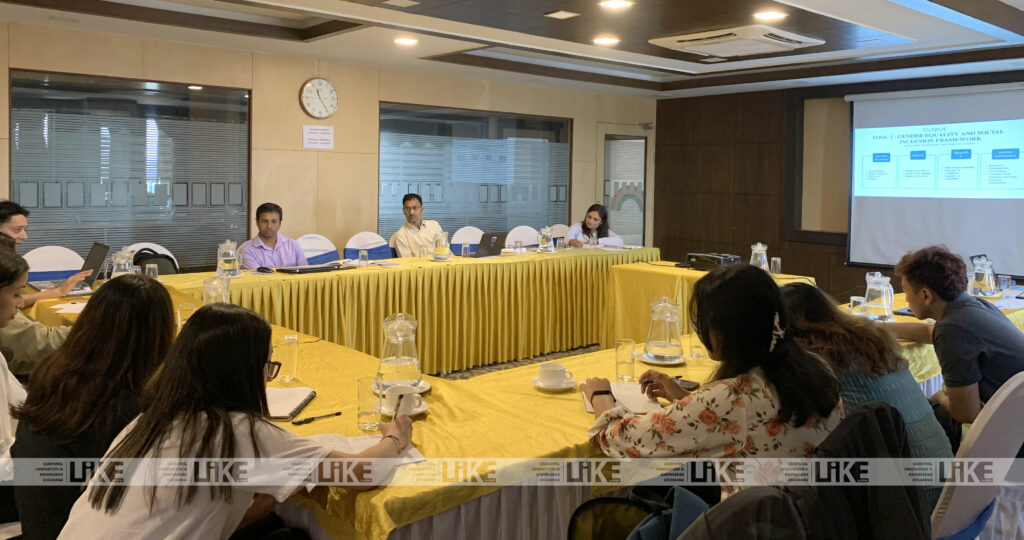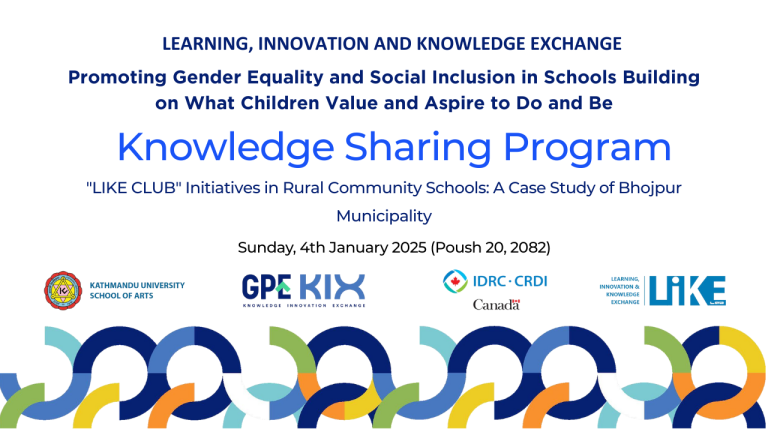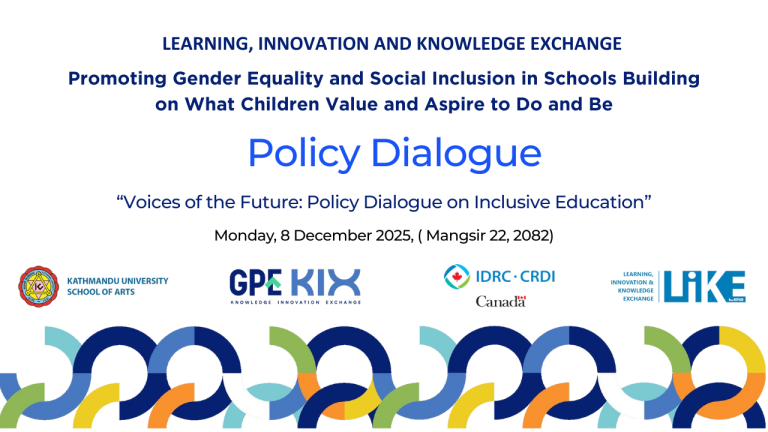
A Knowledge Exchange Event named “Intervention & Practices to Strengthening Public Education System at Rautahat District” organized by Learning Innovation and Knowledge Exchange (LIKE) Lab was held on 31st May 2023 at New Baneshwor, kathmandu. There were 15 people in total, 8 of whom were female and 7 of whom were male.
The event commenced with an opening remark and presentation by Ms. Shreda Shrestha, the Project Coordinator of “Effectiveness and Scalability of Programs for Children Who Are Out of School and at Risk of Dropping Out in Bangladesh, Bhutan and Nepal”, supported by Global Partnership for Education Knowledge & Innovation Exchange (GPEKIX) and International Development Research Center (IDRC).
The event served as a platform for various organizations to share and exchange educational research, interventions, innovative programs, practices, and experiences. Representatives from organizations such as Rural Education and Environment Development Center (REED) Nepal, Oxfam Denmark EOL, Voluntary Service Overseas (VSO) Nepal, Aasman Nepal, and United World School (UWS) Nepal participated in the event and showcased their respective work and interventions aimed at promoting quality education. The focus of the event was on strengthening the public education system in Rautahat District, with participants sharing innovations and solutions targeted at improving educational outcomes for marginalized groups and students with disabilities. The event highlighted the collective efforts and initiatives being undertaken to enhance the accessibility and quality of education in the district.
The organizations’ shared that several areas require attention from a research perspective to address the shared needs of organizations. These areas revolve around various aspects, including structure, function, culture, social action, integration and conflict. Similarly, the issue of good governance in the context of public education was raised, which encompasses the effective formulation and implementation of policies, effective processes, and best practices. In the event, the participants also discussed various issues related to resilient education. These discussions aimed to identify challenges and explore potential solutions to enhance the resilience of the education system. The key issues that were likely addressed includes, infrastructure and resources, digital divide and technological readiness, community engagement and support, availability of teachers in rural settings and implementation of policy and planning.
By bringing together experts, practitioners, and young emerging researchers, this knowledge exchange event has laid the foundation for future collaboration and the continued improvement of public education. The shared insights and interventions are expected to contribute to creating an inclusive and equitable education system.



